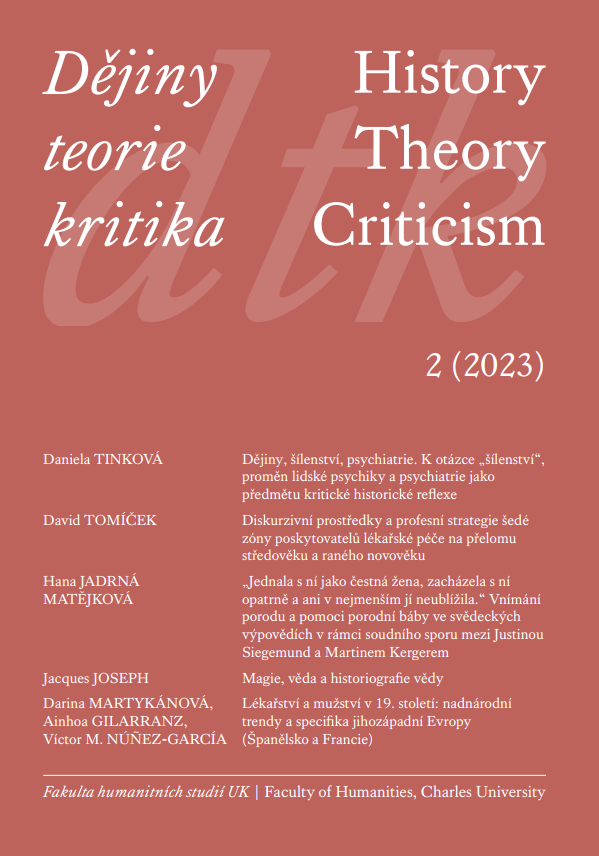History, madness, psychiatry
On “madness”, the transformations of the human psyche and psychiatry as an object of critical historical reflection.
DOI:
https://doi.org/10.14712/24645370.3195Keywords:
history of madness, history of psychiatry, psychohistory, anti-psychiatric movement, medicalizationAbstract
This paper focuses on the key tendencies in writing the "history of madness" and of psychiatry in the 20th (and early 21st) century. It contributes to the historiography of the (natural) sciences, namely to the relationship between the natural and social sciences: medicine, psychology, and historiography. It aims to show perspectives in relation to psychiatric and psychological science (view from inside vs. outside), i.e., interpretation from the perspective of history of a specific field written by psychiatrists (or psychoanalysts), and from the perspective of concepts developed by social sciences, including historiography. It also shows how the relationship of madness and psychiatry differs when it is an object of study of medicine and psychiatry and when it is an object of study of social sciences, humanities, and history. The first part of this study demonstrates to what extent history written by "insiders" of the professional community was part of the field and its auto-legitimizing strategies. This applies mainly to internalist, "modernist" interpretations of the history of psychiatry, but also to their critics (the anti-psychiatry movement). The subchapter devoted to psychohistory, which sought to "psychiatrise history" and was usually promoted by psychoanalysts with a social science or humanities background, presents a contrasting approach. From the 1970s and 1980s onwards, as the humanities, social sciences and history entered the field of medical history, the perspective changed – the non-specialist ‘lay’ view, the externalist ‘outside’ view, made it possible to look at the history of madness, psychiatric disciplines, and practices without a priori assumptions about what the ‘right’ knowledge and scientific ‘truth’ should be. This helped to broaden the "psychiatric field" to include a more complex social, cultural, and political context, a background of political interests, social practices and the broader ideological context that affected shaping of "psychiatry" (including the patient's view). Moreover, it enriched the "psychiatric field" with phenomena, opinions and practices considered by internalist history as "unsuccessful" or "pseudo-scientific" or "uninteresting". This allowed for a "secondary historicization" of the psychiatric discipline, which anchored the whole process more firmly in the background of a specific epoch without the necessary link to the contemporary state of knowledge and "scientific truth" and resulted in a more consistent historicization of this "scientific truth" itself.


